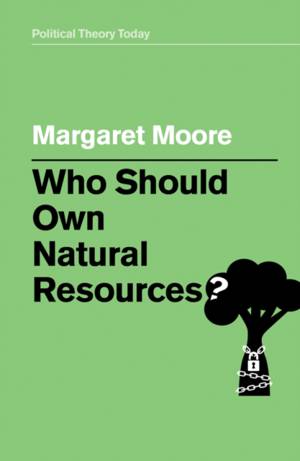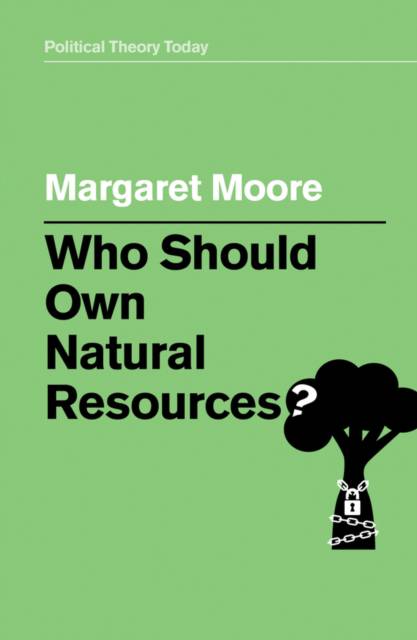
Door een staking bij bpost kan je online bestelling op dit moment iets langer onderweg zijn dan voorzien. Dringend iets nodig? Onze winkels ontvangen jou met open armen!
- Afhalen na 1 uur in een winkel met voorraad
- Gratis thuislevering in België vanaf € 30
- Ruim aanbod met 7 miljoen producten
Door een staking bij bpost kan je online bestelling op dit moment iets langer onderweg zijn dan voorzien. Dringend iets nodig? Onze winkels ontvangen jou met open armen!
- Afhalen na 1 uur in een winkel met voorraad
- Gratis thuislevering in België vanaf € 30
- Ruim aanbod met 7 miljoen producten
Zoeken
Omschrijving
The natural resources of the earth - from oil and water to minerals and land - are crucial to our basic economic and social existence. But who is entitled to control, use and benefit from them? Should anyone 'own' the natural bounty of our planet?
In this book, distinguished political theorist Margaret Moore tackles these questions and examines the different positions in the debate. States claim the right to control the natural resources within their territory. Liberals argue for a system of private ownership rights, including over natural resources, while egalitarians dispute such claims and argue for equal rights to natural resources. Moore shows why these standard approaches to resource justice are wanting, and offers an original approach that examines the different ways in which people interact with resources in order to determine what good is at stake in any particular case.
In the context of serious environmental crisis and looming resource conflicts, this innovative and timely book will be essential reading for all students and scholars interested in the environment, property, distributive justice, and future generations.
In this book, distinguished political theorist Margaret Moore tackles these questions and examines the different positions in the debate. States claim the right to control the natural resources within their territory. Liberals argue for a system of private ownership rights, including over natural resources, while egalitarians dispute such claims and argue for equal rights to natural resources. Moore shows why these standard approaches to resource justice are wanting, and offers an original approach that examines the different ways in which people interact with resources in order to determine what good is at stake in any particular case.
In the context of serious environmental crisis and looming resource conflicts, this innovative and timely book will be essential reading for all students and scholars interested in the environment, property, distributive justice, and future generations.
Specificaties
Betrokkenen
- Auteur(s):
- Uitgeverij:
Inhoud
- Aantal bladzijden:
- 140
- Taal:
- Engels
Eigenschappen
- Productcode (EAN):
- 9781509529179
- Verschijningsdatum:
- 29/07/2019
- Uitvoering:
- Paperback
- Formaat:
- Trade paperback (VS)
- Afmetingen:
- 127 mm x 193 mm
- Gewicht:
- 226 g

Alleen bij Standaard Boekhandel
+ 35 punten op je klantenkaart van Standaard Boekhandel
Beoordelingen
We publiceren alleen reviews die voldoen aan de voorwaarden voor reviews. Bekijk onze voorwaarden voor reviews.











